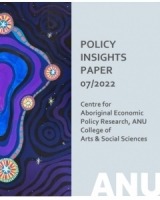The Development and Implementation of Alcohol Policy: Anthropological insights on Translation from the Global (the World Health Organisation) to the Local (Indigenous Australia)

Abstract
In this paper I explore the challenges of implementing policy advice when moving from the global (in the form of the World Health Organization [WHO]) to the local (Australian Indigenous communities). Much of the thinking about alcohol problems and policy has necessarily been framed broadly at a national or international level – the level at which WHO operates. It examines change in societal policies, compares experiences across societies, and tracks advances in knowledge of what works in different contexts. It facilitates collaborative international projects on the prevention of alcohol harms, making these findings available as guides to policy action. Such collaborations have produced multiple-authored publications that have become definitive texts in the field of alcohol policy. WHO also sponsors cross-national trials of different screening and treatment interventions. But in the local context even public interest policy must carry the people along with it. In Australia it must take account of both the wider population and the Indigenous sector, where public policy should ideally dovetail with local social and cultural circumstances at the community level. Here there are regional differences, and special vulnerabilities. Understandings of the local and the particularities of the socio-cultural context are the province of anthropology, and I argue that anthropology – often neglected – has much to offer through considering how to make alcohol policies relevant and workable.







